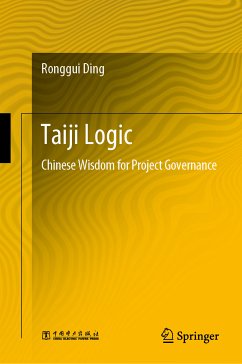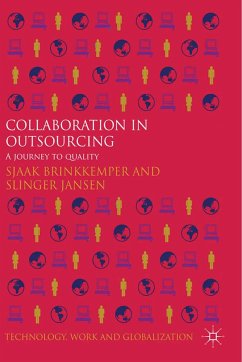This book illustrates the Chinese wisdom hidden behind the project governance which is called "Taiji logic".
"Taiji logic" is a set of dialectical ideals and approaches that are unique in the Chinese culture. The three pillars of "Taiji logic" are: identifying the conflicts based on the principle that Yin - Yang are not only opposite but also unitary, capturing the best time to reconcile conflicts with the laws of transformations of Yin - Yang, and finally, symphonizing conflicts with "Zhong-Yong" ideas to balance the needs of various stakeholders. This book aims to solve key issues in project governance from a special Chinese perspective: What is the essence of "Taiji logic"? How should one identify the major conflicts across various phases of project governance and the best time to reconcile them? What are the essential forces that help one to reconcile major conflicts? The fusion and collision of various cultures has made our world full of variety and conflicts. "Taiji logic" offers philosophical ideas and practical approaches to reconcile conflicts in project management.
Dieser Download kann aus rechtlichen Gründen nur mit Rechnungsadresse in A, B, BG, CY, CZ, D, DK, EW, E, FIN, F, GR, HR, H, IRL, I, LT, L, LR, M, NL, PL, P, R, S, SLO, SK ausgeliefert werden.
Es gelten unsere Allgemeinen Geschäftsbedingungen: www.buecher.de/agb
Impressum
www.buecher.de ist ein Internetauftritt der buecher.de internetstores GmbH
Geschäftsführung: Monica Sawhney | Roland Kölbl | Günter Hilger
Sitz der Gesellschaft: Batheyer Straße 115 - 117, 58099 Hagen
Postanschrift: Bürgermeister-Wegele-Str. 12, 86167 Augsburg
Amtsgericht Hagen HRB 13257
Steuernummer: 321/5800/1497
USt-IdNr: DE450055826
Bitte wählen Sie Ihr Anliegen aus.
Rechnungen
Retourenschein anfordern
Bestellstatus
Storno









